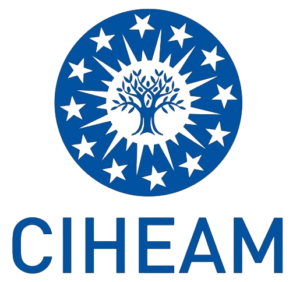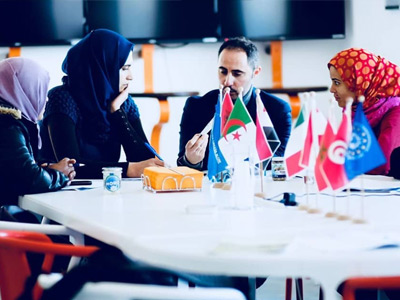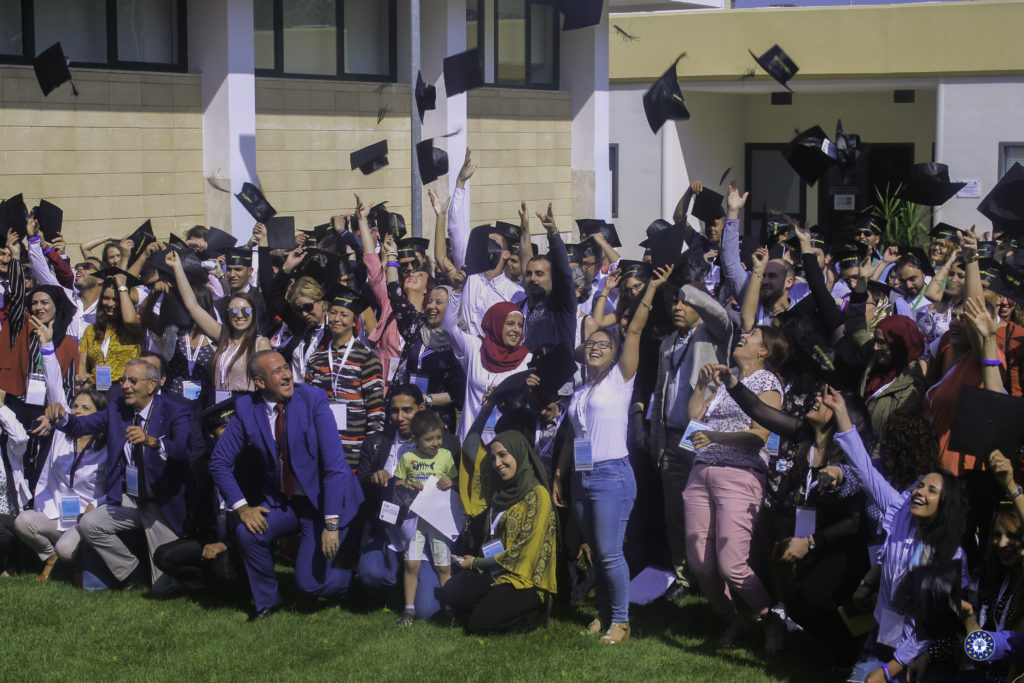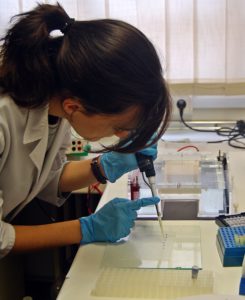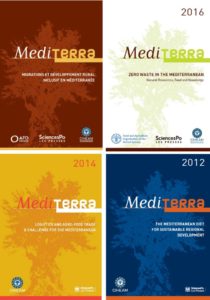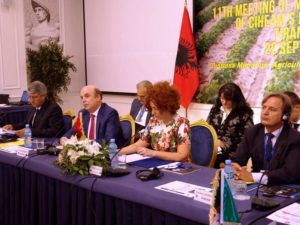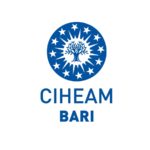Mediterranean Agri-food Systems: The CIHEAM advocates for a collective and resilient approach at the OECD
Paris, 21 May 2025 – Invited to speak at the 24th OECD Plenary Meeting on Global Value Chains, Transformation of Production and Development, the CIHEAM called for a rethinking of agricultural and food policies in the Euro-Mediterranean area in light of current systemic crises.
Speaking at the debates and the closing session, Teodoro Miano, Secretary General of the CIHEAM, stressed that the Mediterranean region is currently facing a "perfect storm", combining political instabilities, geopolitical tensions, water and environmental stresses, precariousness of rural areas and soaring food prices. Exacerbated by the effects of climate change and the fragility of global value chains, the pressures call for coordinated responses.
The CIHEAM highlighted three key levers to address this complexity:
- Innovation for food sustainability: reducing losses and waste, preserving biodiversity, diversifying supply sources and integrating circularity approaches. The Secretary General stressed the need to support training and applied research models rooted in local territories.
- The strengthening of local and regional food circuits: while acknowledging the importance of international trade, the CIHEAM stressed the stabilising role of territorialised agricultural sectors and advocated for better coordination between production, processing and consumption at the local level.
- The recognition of the strategic role of youth and women: through agricultural entrepreneurship and training in transition-related professions, particularly in the fields of agro-ecology, digital technologies and food sciences. A call was also launched to strengthen the presence of women in STEM fields, especially in food-tech technologies.
Scientific diplomacy to align priorities
The CIHEAM also emphasised the need to anchor these transformations in an active scientific diplomacy, fostering dialogue among political actors, researchers, civil society and the private sector. This approach, already implemented through forums, technical networks and reference publications, aims to bring knowledge and better anticipate vulnerabilities.
Resonance with food sovereignty
Finally, the CIHEAM recalled the conclusions of its most recent ministerial meeting (Rabat, October 2024) dedicated to a "Mediterranean Approach to Food Sovereignty". The link between food security, regional cooperation and political stability was clearly established.
In a context where the future of agri-food chains is increasingly debated at the global level, the CIHEAM proposes a Mediterranean perspective on the transitions to be undertaken: based on solidarity between the shores, the valorisation of agricultural know-how, and the intelligent relocation of value chains, without breaking ties with global dynamics.
The Organization also welcomed the OECD's efforts to promote better integration of Southern countries in discussions on the future of agri-food and trade. In this regard, the Pact for the Mediterranean, proposed by the European Commission, could represent a strategic opportunity to align development policies, scientific cooperation and regional stability.


